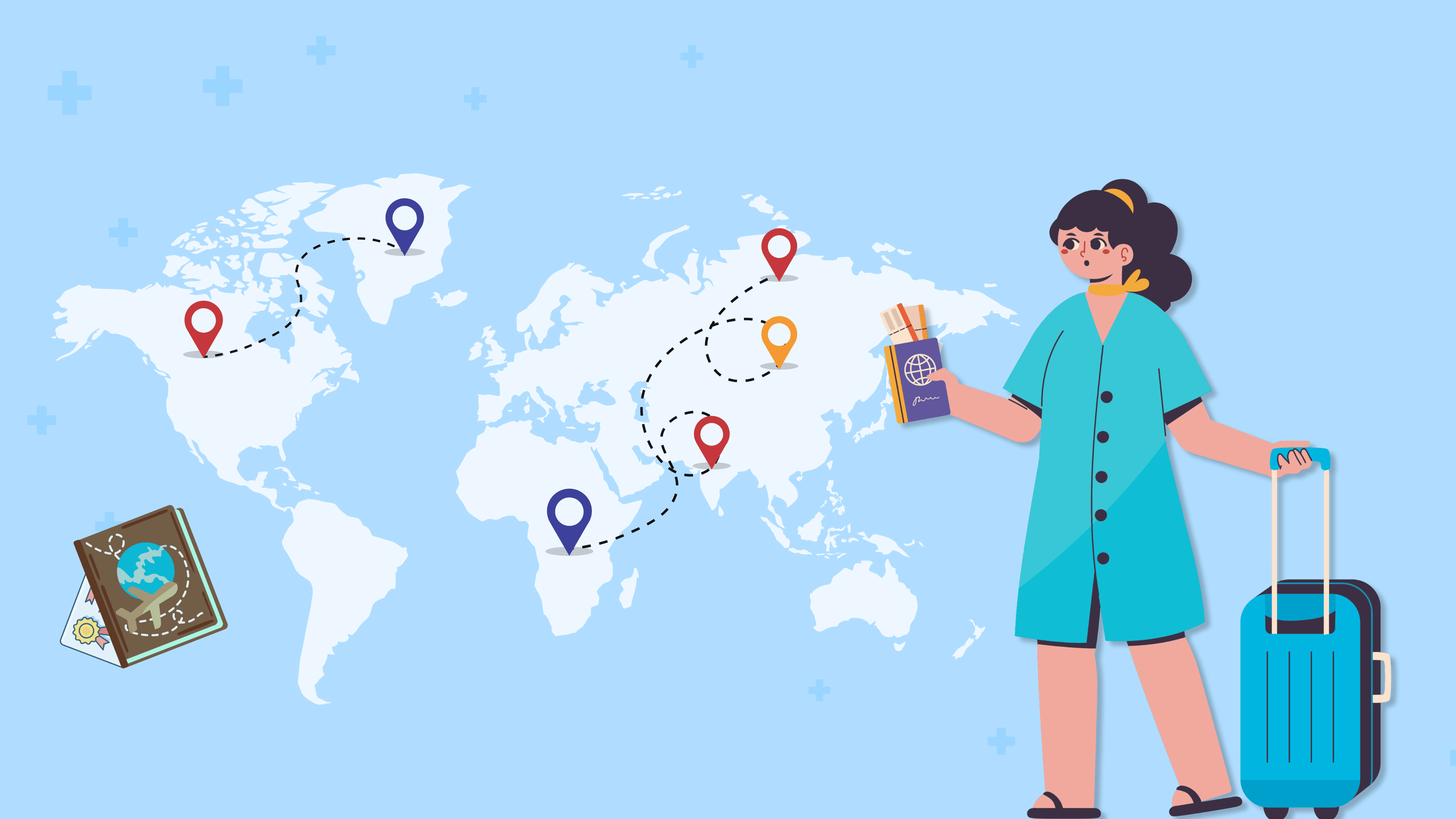
USA Travel Nurse Licensure Guide 2025: Everything You Need to Know
Considering a career as a travel nurse in the United States? Before you hit the road, it’s essential to understand the licensing requirements in your destination state. This updated 2025 guide covers all the key information—from state-by-state rules to the benefits of the Enhanced Nurse Licensure Compact (eNLC)—to help you transition smoothly between travel nursing assignments.
What Is a Nursing License and Why Does It Matter?
In the U.S., registered nurses (RNs) must hold an active and valid state license to practice legally. For travel nurses, this means you need to be licensed in each state where you accept an assignment unless that state is part of the Nurse Licensure Compact (NLC). Knowing the licensing process is crucial to avoid delays in starting your next role.
Travel nurse license requirements in the United States
To work as a travel nurse in the U.S., you must:
-
Hold an active and unrestricted RN license in your primary state of residence.
-
Meet any state-specific requirements, such as continuing education units (CEUs) or clinical hours.
-
Maintain all necessary certifications (e.g., BLS, ACLS) depending on your specialty.
For broader flexibility, many nurses apply for a multistate license through the Enhanced Nurse Licensure Compact (eNLC), which allows practice across participating states without additional applications.
Not all U.S. states are part of the eNLC. Always verify with the NCSBN or the state’s board of nursing before taking an assignment.
Steps to obtaining a travel nurse license
1. Research State Requirements
Visit the official Board of Nursing (BON) website for the state where you plan to work. Review their licensure by endorsement process if you're not already licensed there.
2. Gather Required Documentation
This often includes:
- Proof of your current RN license
- Official transcripts from your nursing program
- Background checks and fingerprinting
- Verification through Nursys (national license verification system)
3. Submit Application & Pay Fees
Complete all application forms, attach necessary documents, and pay any associated fees. Double-check timelines; some states issue licenses within days, while others take several weeks.
4. Follow Up
Track your application status online and be responsive to any additional requests from the BON.
What is Compact Nursing Licenses (eNLC)
If your primary state of residence is a compact member, you may be eligible for a multistate license under the Enhanced Nurse Licensure Compact (eNLC).
As of March 2025, 43 states and jurisdictions are part of the eNLC, allowing nurses to practice across state lines physically, electronically, or telephonically, without obtaining separate licenses.
Key Upgrades in the eNLC:
-
Criminal background checks (state and federal)
-
Uniform licensing standards
-
Disciplinary transparency
These safeguards ensure public protection while offering more flexibility for nurses.
Benefits of an eNLC License:
1. Multi-State Practice Privileges: Work legally in 40+ states without applying for multiple licenses.
2. Increased Job Flexibility: Accept high-paying travel assignments, remote telehealth roles, or crisis response positions across states.
3. Saves Time and Money: No need to repeat fingerprinting, application fees, or delays in licensure processing for each state.
4. Expands Career Opportunities: Many healthcare employers prefer eNLC nurses for their ability to start assignments immediately across state lines.
5. Streamlined Telehealth Practice: Serve patients remotely or deploy quickly during emergencies without licensing delays.
6. Supports Disaster Response: All eNLC nurses meet consistent education, background, and licensure requirements.
Requirements for a Compact State License
To obtain a Compact Nursing License and legally work in any eNLC participating state, you must meet the following eligibility requirements:
-
The primary state of residence must be a member of the eNLC.
-
You must hold a current, active RN or LPN/LVN license issued by your home state.
-
Must meet uniform licensure requirements, including:
1. Graduation from a board-approved education program
2. Passing the NCLEX-RN or NCLEX-PN
3. A clean criminal background check (both state and federal)
4. No active disciplinary actions on your license
What Are Compact Nursing States?
Compact states have agreed to a unified licensing model that allows one multistate license to be valid across all member states.
-
The original NLC launched in 2000 with 25 states by 2015.
-
The eNLC replaced it in 2018 with added security and licensure standards.
If your home state is compact and you meet the criteria, you can legally practice in all other compact states without reapplying for a new license.
Proof of residency is required. Your driver’s license, voter ID, or tax return must show a compact state as your primary residence.
How SGS Consulting Supports Travel Nurses
At SGS Consulting, we go beyond just matching you with jobs. Here’s how we help:
-
Personalized onboarding support
-
Access to top travel nursing opportunities across the U.S.
-
Dedicated 1:1 recruiter to match your profile with premier hospitals
-
Ongoing support and career growth resources
-
No fees, no charges, no hidden costs for our placement services
Ready to Start Your Travel Nurse Journey?
Whether you’re planning to explore sunny Florida or the Pacific Northwest, SGS Consulting makes your travel nursing career seamless and rewarding.
Send your resume to resumes@sgsconsulting.com and let our expert team connect you with the right healthcare job.
You can also browse our current openings here .
